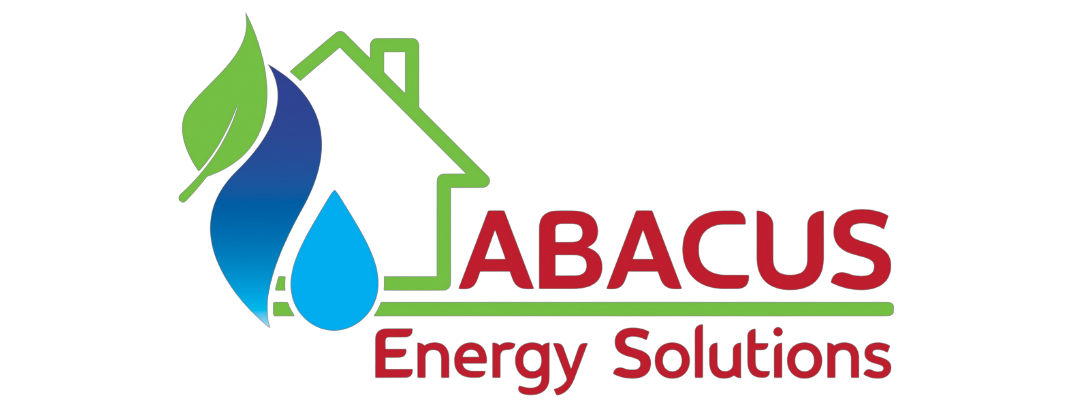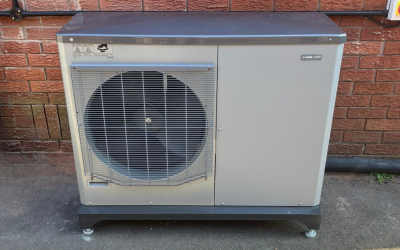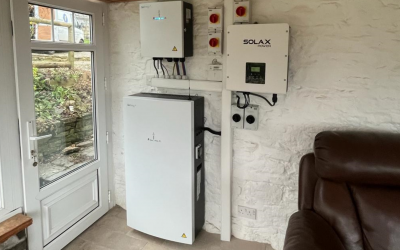In the face of growing environmental concerns and rising energy costs, renewable energy technologies have gained significant attention in recent years. Solar panels, Heat Pumps, EV chargers, and Battery Storage systems are at the forefront of this green revolution. But how much do these technologies cost to buy and install, and what kind of savings can they offer to homeowners and businesses? This blog aims to answer these questions and shed light on the financial aspects of embracing renewable energy.
Solar Panels: Harnessing the Power of the Sun
Solar panels are a popular choice for homeowners and businesses looking to reduce their reliance on fossil fuels and cut down on electricity bills. The initial cost of purchasing and installing Solar Panels can vary depending on factors like the size of the system and location. On average, you can expect to pay between £5,000 to £6,000 for a 10-panel array with Abacus. However, this price can increase if you decide to invest in a Battery storage system to around £11,000.
However, the investment in Solar Panels can pay off in the long run. Solar panels typically have a lifespan of 25-30 years and, with proper maintenance, can continue to produce electricity for even longer. This translates into significant savings on your energy bills, as you’ll generate your own electricity and, in some cases, feed excess power back into the grid for credit or compensation.
Heat Pumps: Efficient Heating
Heat Pumps are a green alternative to traditional heating systems. The cost of purchasing and installing a Air Source Heat Pump can range from £10,000 to £15,000 depending on the brand, size, and efficiency. Ground Source Heat Pumps are more expensive, typically around £20,000 to £25,000 due to the ground works needed before install. While the upfront costs might seem steep, Heat Pumps are remarkably efficient, using electricity to move heat rather than generate it, resulting in substantial energy savings over time.
Homeowners who switch to Heat Pumps often see a decrease in their energy bills due to the increased efficiency of these systems. In some cases, they can cut heating costs in half. Additionally, Heat Pumps are made cheaper due to government incentives like the Boiler Upgrade Scheme which was increased in October to £7,500.


EV Chargers: Powering the Electric Revolution
With the increasing popularity of electric vehicles (EVs), the installation of EV chargers is becoming more common. The cost of an EV charger installation depends on factors such as the charger location, and existing electrical infrastructure. A typical charger with professional installation can range from £1,000 to £2,000.
The savings associated with EV chargers come from reduced fuel costs and the convenience of charging at home. Electric vehicles are generally cheaper to operate and maintain than traditional petrol vehicles, making them a cost-effective choice in the long run.
Battery Storage: Storing Energy for the Future
Battery storage systems, like GivEnergy, are becoming increasingly popular for homes and businesses. The cost of purchasing and installing a Battery Storage system varies depending on the size and capacity of the battery. Smaller systems can cost around £5,000 while larger systems can range from £8,000 to £14,000 or more depending on the number of batteries installed.
Battery storage can provide substantial savings by allowing users to store excess energy generated by Solar Panels or take advantage of lower electricity rates during off-peak hours. This stored energy can be used during peak hours, reducing the need to draw power from the grid, which can be more expensive.


While the upfront costs of renewable energy technologies like Solar Panels, Heat Pumps, EV chargers, and Battery Storage may seem daunting, they offer significant savings in the long term. The exact savings will depend on factors such as location, system size, and usage patterns. In addition to reducing energy bills, these technologies contribute to a greener and more sustainable future by reducing carbon emissions and reliance on fossil fuels. When considering the purchase and installation of these technologies, it’s essential to factor in available incentives that can further offset the initial investment, making the transition to renewable energy even more appealing. By embracing these technologies, individuals and businesses can not only save money but also contribute to a cleaner and more sustainable world.





